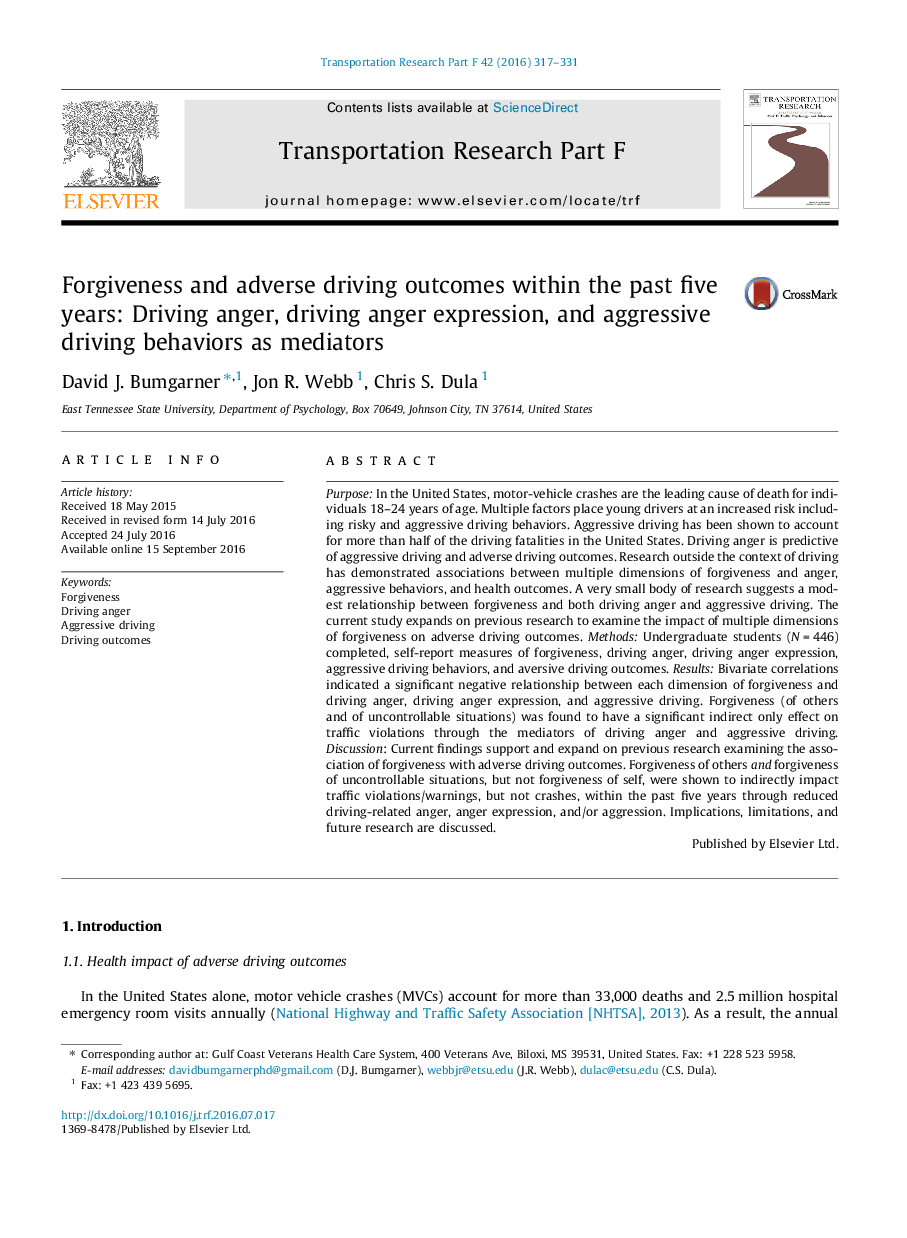| کد مقاله | کد نشریه | سال انتشار | مقاله انگلیسی | نسخه تمام متن |
|---|---|---|---|---|
| 5037511 | 1370225 | 2016 | 15 صفحه PDF | دانلود رایگان |
- Forgiveness negatively correlated with driving anger and aggressive driving.
- This study demonstrates the utility of the forgiveness-health model to driving outcomes.
- Forgiveness predicted traffic violations through anger and aggressive driving.
- Forgiveness was not found to be a significant predictor of motor-vehicle crashes.
- Further work should be done to explore the forgiveness-driving relationship.
Purpose: In the United States, motor-vehicle crashes are the leading cause of death for individuals 18-24Â years of age. Multiple factors place young drivers at an increased risk including risky and aggressive driving behaviors. Aggressive driving has been shown to account for more than half of the driving fatalities in the United States. Driving anger is predictive of aggressive driving and adverse driving outcomes. Research outside the context of driving has demonstrated associations between multiple dimensions of forgiveness and anger, aggressive behaviors, and health outcomes. A very small body of research suggests a modest relationship between forgiveness and both driving anger and aggressive driving. The current study expands on previous research to examine the impact of multiple dimensions of forgiveness on adverse driving outcomes. Methods: Undergraduate students (NÂ =Â 446) completed, self-report measures of forgiveness, driving anger, driving anger expression, aggressive driving behaviors, and aversive driving outcomes. Results: Bivariate correlations indicated a significant negative relationship between each dimension of forgiveness and driving anger, driving anger expression, and aggressive driving. Forgiveness (of others and of uncontrollable situations) was found to have a significant indirect only effect on traffic violations through the mediators of driving anger and aggressive driving. Discussion: Current findings support and expand on previous research examining the association of forgiveness with adverse driving outcomes. Forgiveness of others and forgiveness of uncontrollable situations, but not forgiveness of self, were shown to indirectly impact traffic violations/warnings, but not crashes, within the past five years through reduced driving-related anger, anger expression, and/or aggression. Implications, limitations, and future research are discussed.
Journal: Transportation Research Part F: Traffic Psychology and Behaviour - Volume 42, Part 2, October 2016, Pages 317-331
